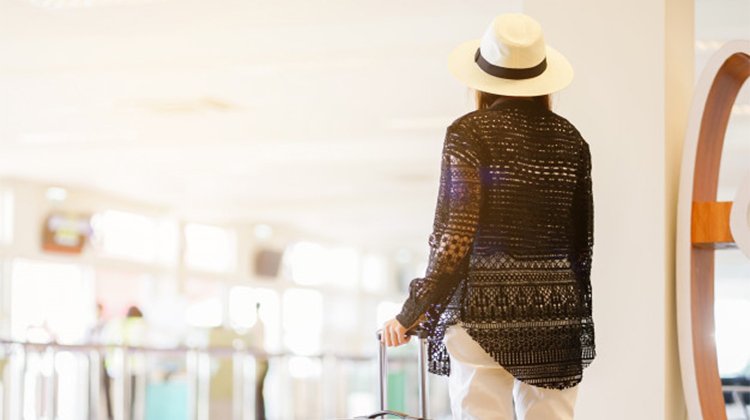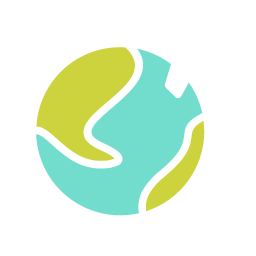Is your dream to live and work in Australia?
Learn more about how you can fulfill your dream.
Do you have any questions? Call now

Learn more about how you can fulfill your dream.
Graduate visa sc 485: This visa gives a candidate the possibility to work in their field of study in Australia and to explore the option of applying for a temporary or permanent work visa or employer program leading to permanent residency in Australia.
Answer each of the fields requested in the Visa evaluation form.
Attach the required, updated documents.
We will evaluate your situation and contact you for more details.
Receive personalized support, tailoring our services to meet your specific needs.

Australia is one of the top destinations for international students thanks to its high-quality education system, world-ranked universities and diverse and welcoming culture. Australia offers some of the best universities in the world, an excellent student experience and qualifications that are highly valued by employers around the world. Academic programs in Australia focus on learning for the real world so by studying in Australia, you will gain knowledge, skills and experiences valued by companies around the world. Australians pride themselves on their friendliness and cultural diversity. The population lives in a generally safe, friendly, sophisticated and harmonious society. Many ethnic groups are represented in Australia, making it one of the most culturally diverse countries in the world.
Migrating to Australia is an exciting process, but it can also be complicated and require planning. Here are some general steps you may want to follow: 1. Determine your eligibility: Australia has several types of immigration visas, each with its own requirements. You can check your eligibility by using the visa assessment tool on the Australian Department of Home Affairs website. 2. Choose the right type of visa: Depending on your situation, you could apply for visas such as the Skilled Independent Visa (Subclass 189) for skilled workers, the Employer-Sponsored Visa (Subclass 482) if you have a job offer from an Australian employer, or the Student Visa if you plan to study in Australia, among other options. 3. Gather the required documentation: Each type of visa has its own documentation requirements. This may include passport, proof of language skills, certificates of education and work experience, among others. 4. Assess your language skills: For most visas, you will need to demonstrate a certain level of English proficiency. You can do this through internationally recognized tests such as IELTS or TOEFL. 5. Assess your professional skills: If you are applying for a skills-based visa, such as the Skilled Independent Visa, you will need to obtain an assessment of your skills and qualifications from the relevant Australian authority. 6. Submit your visa application: Once you have gathered all the necessary documentation, you can submit your visa application through the Australian Department of Immigration and Borders online system. Be sure to follow all instructions carefully and provide all required information. 7. Wait for a decision: Visa processing times may vary depending on the type of visa and other factors. You can check estimated processing times on the Australian Department of Immigration and Borders website. 8. Plan your move: Once your visa is approved, you can start planning your move to Australia. This may include looking for housing, organizing your move, and familiarizing yourself with life in Australia, such as the health care system, education and culture. It is important to note that this is only a general overview of the migration process to Australia and that each case may be unique. It is recommended to research thoroughly and, if possible, seek professional advice to ensure you fully understand your options and meet all requirements.
Yes, in most cases, a visa is required to migrate to Australia. Australia has a fairly structured visa system and visa options depend on several factors, such as the purpose of your trip, the length of your stay, your skills and personal circumstances. Here are some common cases where a visa is required: 1. Work: If you wish to migrate to Australia to work, you will generally need a work visa. This could include visas such as the Skilled Independent Visa (Subclass 189) for skilled workers who wish to reside permanently in Australia, or the Employer-Sponsored Visa (Subclass 482) for those who have a job offer from an Australian employer. 2. Study: If you plan to study in Australia, you will need a student visa. This visa will allow you to study at an Australian educational institution for a specific period of time. 3. Temporary visits: If you plan to visit Australia for vacations, to visit family or friends, or for other temporary purposes, you will probably need a visitor visa, such as the Visitor Visa (Subclass 600). 4. Family Immigration: If you have close family members who are Australian citizens or permanent residents, you may be eligible for a family immigration visa. 5. Investment or Business: If you are interested in investing or establishing a business in Australia, you may be eligible for a business or investment visa. It is important to review the specific visa requirements for your particular situation and make sure you meet all the criteria before submitting an application. The Australian Department of Immigration and Borders (Department of Home Affairs) is the authority responsible for visas and provides detailed information on the different types of visas and the requirements for each.
Determine your eligibility: Australia has several types of immigration visas, each with its own requirements. You can check your eligibility using the visa assessment tool on the Australian Department of Home Affairs website.
Australia offers a wide range of educational options for international students including English language programs (ELICOS), vocational education (VET), undergraduate, masters and doctoral degrees. Here is a list of some of the popular majors you can study in Australia: 1. Business and Management: This includes programs such as Business Administration, Accounting, Finance, Marketing, Human Resources, Project Management, etc. Engineering: Civil Engineering, Mechanical Engineering, Electrical Engineering, Software Engineering, Chemical Engineering, Mining Engineering, etc. 3. Information Technology (IT) and Computing: Computer Science, Software Engineering, Computer Security, Data Analysis, Computer Networks, etc. 4. Science: Biology, Chemistry, Physics, Mathematics, Environmental Science, Geology, etc. 5. Health and Medicine: Medicine, Nursing, Dentistry, Pharmacy, Physiotherapy, Psychology, Public Health, etc. 6. Education: Primary Education, Secondary Education, Special Education, Physical Education, etc. 7. Arts and Humanities: English Literature, History, Philosophy, Archaeology, Visual Arts, Music, Theater, etc. 8. Tourism and Hospitality: Hotel Management, Tourism, Events, Restaurant Management, etc. 9. Design and Creativity: Graphic Design, Fashion Design, Industrial Design, Architecture, Fine Arts, Animation, etc. 10. Social Sciences: Psychology, Sociology, Social Work, Anthropology, Political Science, Economics, etc. These are just a few options and there are many more available. Before choosing a course, it is important to research educational institutions in Australia, review the programs offered and consider your own interests, skills and career goals.
Our basic advice is free of charge, once we identify your requirements and profile we will schedule a 45 minute meeting with the immigration agent who will tell you in detail the process that should be followed according to your profile.
Cada paso a seguir para obtener la visa tiene un costo que se debe pagar al gobierno australiano. Una vez que se defina el proceso particular a seguir se podrás establecer los valores correspondientes.
Cada proceso para obtener la visa es diferente y se trata de acuerdo con el perfil de cada candidato, por esto las solicitudes se evalúan caso por caso y los tiempos de procesamiento pueden variar por una serie de razones, entre otras: la complejidad del caso, la presentación oportuna de todos los documentos requeridos o el tiempo de respuesta del candidato a las solicitudes de información adicional de las autoridades australianas.
Sí, es posible que una pareja migre a Austria juntos, pero el proceso puede variar según la situación particular de cada persona y los requisitos de inmigración establecidos por las autoridades australianas. Las parejas pueden tener diferentes situaciones migratorias, como ser cónyuges, parejas de hecho o simplemente parejas en una relación estable. Los requisitos para la migración en pareja a Australia pueden incluir cosas como pruebas de relación, pruebas de medios financieros suficientes, seguro de salud, y cumplir con los criterios específicos de visa o permiso de residencia. Es importante investigar y seguir los procedimientos adecuados para la migración en pareja a Australia, ya que pueden ser diferentes según la nacionalidad y las circunstancias individuales de cada persona. Se recomienda que la pareja consulte con las autoridades de inmigración o busque asesoramiento legal especializado para obtener información precisa y actualizada sobre cómo proceder en su caso específico.
Yes, it is possible to migrate as a family to Australia. Australia offers several visa options for families wishing to migrate together. These visas, among others, may include: Family Migrant Visa, Partner Visa and Absentee Contributor Visa. These are just a few examples of the visas available for family migration to Australia. It is important to note that each type of visa has specific requirements and eligibility criteria that must be met. It is recommended to consult the official website of the Australian Department of Immigration and Borders or seek specialist legal advice for accurate and up to date information on family migration options to Australia.
In Australia, there are several ways to get housing, depending on your circumstances and preferences. Here are some options: 1. Renting: You can search for rental properties through specialized websites or through local real estate agencies. 2. Buy: If you are interested in buying property in Australia, you can search for homes for sale through websites or by hiring a real estate agent. You should research the real estate market in the area you are interested in and consider your financial options before making a decision. 3. Temporary accommodation: If you are new to Australia and need temporary accommodation while you are looking for permanent housing, you can consider options such as hotels, hostels, furnished apartments or Airbnb. In the case of students, in some cases universities offer housing services, for this you should know if the institution to which you aspire has this service, as well as its costs. Remember that the housing search process may vary depending on the city or region where you are in Australia, so it is important to research and familiarize yourself with the options available in your specific area. It is also helpful to consider factors such as cost of living, proximity to work or schools, and amenities available in the neighborhood when choosing a home.
Yes, it is possible to work while studying in Australia, but this depends on the type of student visa you have and the conditions associated with that visa. Most international students in Australia can work during their period of study, but there are usually restrictions on the number of hours they can work during term time. Working conditions for international students in Australia vary depending on the level of study and type of visa. Here are some general guidelines: 1. higher education student visa (Higher Education): students studying at undergraduate and postgraduate level at a higher education institution in Australia are generally allowed to work up to 40 hours per fortnight during term time and without restrictions during break periods. English Language Student Visa (ELICOS): Students enrolled in full-time English language courses may work up to 40 hours per fortnight during term time and without restrictions during break periods. Vocational Education Student Visa (VET): Students enrolled in full-time vocational education courses may work up to 40 hours per fortnight during term time and without restrictions during break periods. 4. Secondary School Student Visa: Secondary school students may only work up to 40 hours per fortnight during the school term. It is important that students check the specific working conditions of their visa before starting work and comply with all current Australian labor regulations. In addition, working can be an excellent way to gain work experience and supplement studies, but it is also important to maintain an appropriate balance between work and studies to ensure academic achievement.
The estimated costs of living in Australia can vary depending on the city you are in, your lifestyle and other factors. However, here is a general estimate of some common costs: 1. housing: the cost of rent varies significantly by location. In cities like Sydney or Melbourne, rents tend to be higher than in regional areas. A one-bedroom apartment in the center of a large city can cost between 1500 and 3000 AUD per month, while in suburban or regional areas it may be less expensive. 2. Food: The cost of food can be moderate to high, depending on whether you eat at home or out. It is estimated that a person will spend between 200 and 400 AUD per month on groceries, although this may vary depending on your eating habits and the city you live in. Transportation: Public transportation in major cities can be relatively expensive. For example, a monthly public transportation pass can cost around 100-200 AUD, but this varies depending on the city and the areas you need to travel to. 4. Health: Australia has a public health system (Medicare), but it is also common to have private health insurance to cover additional services and avoid waiting times. Private health insurance costs vary according to age, coverage and provider, but can range from 50 to 200 AUD per month. 5. Entertainment and Leisure: Entertainment costs can vary, but dining out, going to the movies or participating in recreational activities can be quite expensive in major cities. It is recommended to budget at least 200-500 AUD per month for leisure activities. 6. Utilities: Utilities such as electricity, gas and water can add up to several hundred dollars per month, depending on the size of your household and energy usage. 7. Telecommunications: Cell phone and Internet costs can vary depending on the plan and provider you choose. It is recommended to budget at least 50-100 AUD per month for telecommunication services. It is important to note that these are only estimated costs and may vary depending on your personal situation and the exact location in Australia where you choose to live. It is recommended that you specifically research the costs in the city or region you are interested in before making important decisions.
Enter your email address to receive our latest updates and offers.


